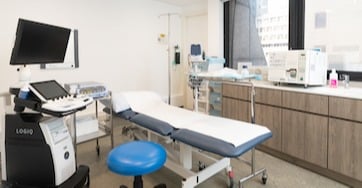Overview
What is Atropine?
Atropine is a medication used primarily as an antidote to certain types of nerve agent and pesticide (organophosphate) poisonings as well as emergency treatment of symptomatic bradycardia(slow heart rate) and to decrease saliva production during general anesthesia and surgery. It is derived from the Atropa belladonna plant, commonly known as deadly nightshade.
The active compound, atropine, belongs to a class of drugs known as anticholinergics or antimuscarinics, which work by blocking the action of acetylcholine, a neurotransmitter that mediates heart rate (slows down), digestion, respiratory secretions, salivation, and other functions.
Global Name
The generic name for Atropine is atropine sulfate. It is not typically marketed under different brand names, as it is a generic drug.Usage
What is Atropine used for?
Atropine is used to manage and treat:
- Symptomatic bradycardia (abnormally slow heart rate).
- Anesthesia premedication to reduce saliva and other secretions.
- Antidote for organophosphate poisoning (including some pesticides and chemical warfare nerve agents).
- Ophthalmic procedures to dilate pupils.
How do you use Atropine?
Availability:
Atropine is available in various forms, including eye drops, injections, and oral tablets.
Dosage information:
- Adults: Dosage varies based on the condition being treated; for symptomatic bradycardia, typically 0.5 mg to 1 mg intravenously, repeated every 3 to 5 minutes as needed; For organophosphate poisoning: 2-3 mg every 20-30 minutes, titrate to effect for secretion and bradycardia control.
- Children: Pediatric dosages are carefully calculated based on body weight.
- Elderlies: Dosage adjustments may be necessary due to potentially increased sensitivity to the drug’s effects.
Are the following suitable to take the drug: Children, adults, elderlies?
- Children: Yes, under careful medical supervision.
- Adults: Yes.
- Elderlies: Yes, with adjusted dosages as necessary.
Is there anyone who can’t take Atropine ?
- Children: Must be dosed carefully and monitored.
- Adults: Those with glaucoma, obstructive gastrointestinal conditions, or urinary retention should avoid it.
- Elderlies: Increased sensitivity might require dosage adjustments.
- Pregnancy: Consult a healthcare provider; use only if the potential benefit justifies the potential risk to the fetus.
- Lactation: Not recommended as it can pass into breast milk and affect the infant.
Allergies: Individuals allergic to atropine or belladonna alkaloids should not use this medication.
Warnings and Precautions:
- Atropine should be used with caution in individuals with a history of heart disease, high blood pressure, thyroid problems, or those prone to urinary retention or constipation.
- Atropine should be taken on an empty stomach 1 hour before or 2 hours after meals if taken orally.
Drug and Food/Beverage Interactions:
Atropine may interact with other anticholinergic drugs, antihistamines, and certain antipsychotic medications. It is contraindicated in patients with acute angle closure glaucoma and obstructive urologic and gastrointestinal conditions.Side Effects
Common side effects include dry mouth, blurred vision, sensitivity to light, lack of sweating, dizziness, constipation, and urinary retention. Severe reactions may include hallucinations, severe confusion, and hyperactivity.
Pharmacist Tips
Storage information:
Store at room temperature, away from light and moisture.
Handling instructions:
Handle with care, especially when dealing with injectable forms to avoid contamination.
Availability
Where is Atropine available in Hong Kong?
Atropine is a prescription medication that can be prescribed by healthcare providers.
FAQs
How fast does Atropine work?
When administered intravenously for cardiac conditions, effects are typically seen within minutes.
Can Atropine be used regularly?
Atropine is generally used in acute settings; its regular use depends on specific medical conditions and should be prescribed by a healthcare provider.
What should I do if I experience side effects from Atropine?
Contact your healthcare provider immediately; some side effects may require prompt medical attention.
Is Atropine safe during pregnancy?
Atropine should only be used if clearly needed and prescribed by a healthcare provider as it can cross the placenta.
Disclaimer
This website provides content related to drug use and medicine for informational purposes only. It is not a substitute for professional medical advice, diagnosis, or treatment. Do not use the information on this website to diagnose or treat a health problem or disease without consulting a qualified healthcare provider. The website's owners and contributors are not liable for any repercussions, adverse effects, or consequences resulting from the use of any medication or information provided herein.
 Central General Practice
Central General Practice
 Repulse Bay
Repulse Bay
 Clearwater Bay
Clearwater Bay
 BodyWorX Clinic
BodyWorX Clinic
 Central Specialist Clinic
Central Specialist Clinic
 MindWorX Clinic
MindWorX Clinic
 Partner Clinics
Partner Clinics
 Family Clinic
Family Clinic
 OT&P Annerley Midwives Clinic
OT&P Annerley Midwives Clinic
